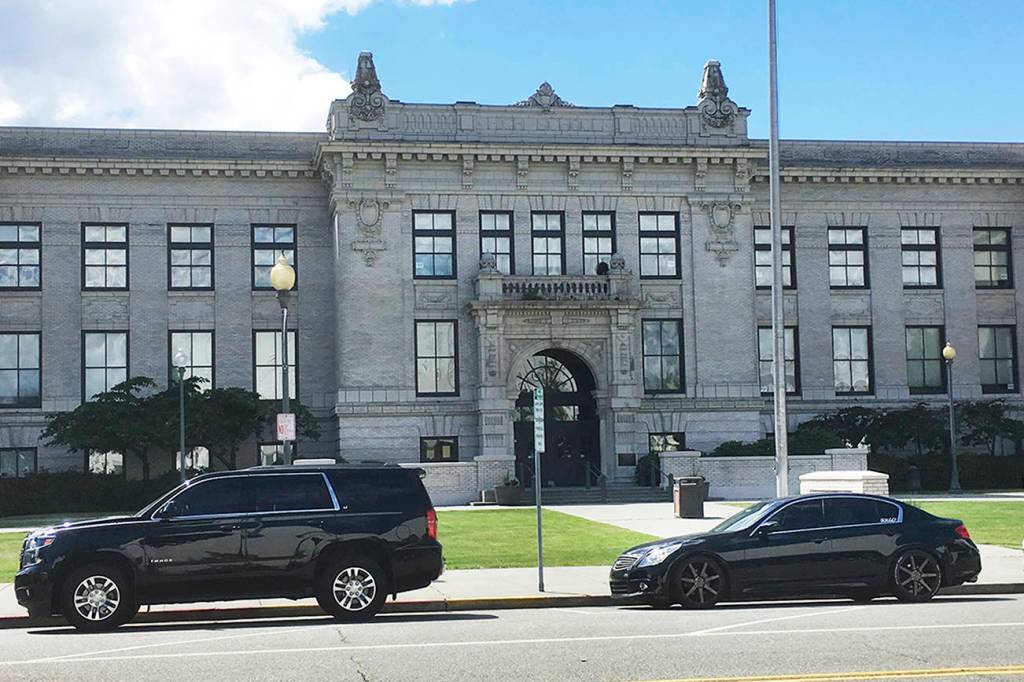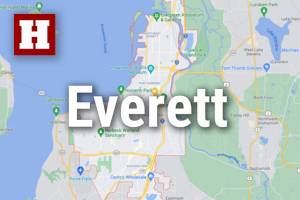School districts can collect more taxes, but will they try?
Published 1:30 am Sunday, June 2, 2019


OLYMPIA — School districts will be able to collect more money from local property taxes next year.
Not every one in Snohomish County will.
And those that do probably won’t need voters’ permission because they already got it.
State schools Superintendent Chris Reykdal said it’s a decision school board directors will make as they craft budgets for next school year.
“Most who have the chance will bump it up,” he said. “I am not hearing that many want to go back to their voters and ask for more. Most of those districts want to get through their levy cycle.”
A new law eases restrictions on levies set by lawmakers and the governor in 2017 as part of broad restructuring of public school financing to address a mandate to fully fund basic education.
They capped what districts could collect from local property taxes at $1.50 per $1,000 of assessed value, or $2,500 per student — whichever was less. Lawmakers and Gov. Jay Inslee also hiked the statewide property tax rate substantially and distributed this new revenue to districts.
Described as a levy swap, lawmakers figured the increase of state dollars would offset the drop in local tax receipts. But leaders of many school districts said the cap was too low and it caused a significant loss of revenue for enrichment programs such as sports, drama, and music, as well as teachers and staff not funded by the state.
Under the new law, starting in 2020 districts will be able to collect $2.50 per $1,000 of assessed value, or $2,500 per student, whichever is less. Seattle Public Schools, the state’s largest district, is allowed to collect the lesser of $2.50 per $1,000, or $3,000 per student.
Taking advantage of the change will be easy for some districts and not worth trying for others.
There are districts in which voters authorized a tax rate above the state-imposed cap. Their leaders just need to let the county assessor know to impose it.
In other districts, voters approved a levy rate equal to the state-imposed cap. They will need voters to pass a supplemental levy before a higher rate is assessed. Asking voters to raise their taxes is not something most school leaders are interested in doing this year.
Darrington School District is in that situation.
In February 2018, its voters rejected a levy with a tax rate above the state limit. The school board tried again two months later with the then-prescribed maximum rate and voters said yes.
Superintendent Buck Marsh said right now they’re sticking with what voters approved. That means not pursuing a potential $500,000 of additional tax revenue in 2020.
“Olympia really didn’t do school districts any favor with the way they set this up,” he said. “We will study the possibility of running a supplemental levy in late 2019, and reach out to our community to gauge the feasibility of such a measure. At the same time, we are sensitive to our voters’ concerns following increases in state property taxes in 2018 coupled with higher assessed values.”
Marysville, Everett and Edmonds school districts are among those able to collect millions of additional dollars without supplemental levies because their school boards rolled the dice that lawmakers would raise the cap.
In February 2018, voters passed levies giving each of those districts the ability to collect more in taxes than allowed. Districts couldn’t use the authority this year but will next.
“We knew (the higher rate) wasn’t the current law. But we knew it was the best for our kids,” said Mike Sullivan, executive director of finances and operations for the Marysville School District. “We hoped in the future that things would be more equitable. It’s a unique situation for every district. I think it’s going to work for our district.”
For Marysville, it will add up to $22 million in local property taxes in 2020, roughly $9 million more than this year.
“For our district it is enough to get us back on track because we had lost such a large percentage of our levy,” Sullivan said. “It levels the playing field so we have about the same amount of money to educate students as other school districts.”
The Everett School District put forth a levy based on $2,200 per student in the first year, $2,350 in the second and third and $2,500 in the fourth. That worked out to annual levy rates of slightly above $2 per $1,000 of assessed value.
The district anticipates bringing in about $45 million in 2020, a tax hike of roughly $11.5 million from 2019. It is not the maximum allowed but the school board won’t put out a supplemental levy.
“When we went out to voters in 2018, we looked at the inequities of the current formula and to us it was absolutely unfathomable that they wouldn’t make a correction,” said Jeff Moore, executive director of finance and business services for the Everett School District. “We’re below what the law now allows and we’re going to honor what the voters approved in 2018.”
Next year, when property owners get their tax bills, they will see a higher payment for the enrichment levy. But overall, property owners will be paying the same tax rate in the Everett School District because the rate for other district-related taxes will be lower, Moore said.
Voters in the Edmonds School District authorized a levy rate capable of generating $57 million in 2020. Under the formula for the new law, the maximum the district can collect is $53 million in the calendar year. That’s $4 million more in taxes than allowed under the old cap.
Arlington School District voters passed a four-year levy in 2016 well before lawmakers even considered restricting local levies.
At that time, voters authorized the district to collect $14.5 million in taxes in 2019, which worked out to a rate of about $3.08 per $1,000 of assessed value. But the state-imposed limit reduced receipts to about $7.3 million.
Under the new law, the levy rate will climb — though not all the way back to what voters approved. The district will be able to get about $12.1 million in local levies, or $4.8 million more to pay for education costs not covered by the state’s basic education program funding, according to Gina Zeutenhorst, the district’s executive director of financial services.
The levy expires at the end of 2020. Voters will likely be asked early next year to approve a new levy.
Meanwhile, leaders of the Lake Stevens, Monroe and Mukilteo school districts are standing pat with what voters approved in 2018.
For the Lake Stevens School District, the new law opens the door to roughly $5.5 million more with voter approval.
“At this time, our Board of Directors has no plans to run a supplemental levy,” spokeswoman Jayme Taylor said.
Monroe School District expects to get $11.9 million in levy receipts in 2020. With the new law, the district could tally up to $17 million if voters agreed to raise their taxes. They won’t be asked.
“We anticipate collecting the amount the voters approved and have no plans to go out to voters to ask for an increase to this levy amount,” spokeswoman Tamara Kreche said in an email.
Ditto for Mukilteo School District. It will net a projected $36.4 million next year. It could be about $4 million higher with the voters’ sign-off but they aren’t going to the ballot.
District leaders would prefer lawmakers focus on providing a reliable and ample supply of dollars for basic education, not levies.
“Our position was always that they were about talking about the wrong thing,” district spokesman Andy Muntz said. “What the argument should have been about was the funding of basic education because they weren’t fully funding basic education.”
Reykdal expects funding will be up for discussion again next year, as will other potential tweaks in the levy rules.
“For many districts, there continues to be a fairness argument,” he said. “I still think you should expect some districts to come back and say, ‘Help.’”
Jerry Cornfield: 360-352-8623; jcornfield@herald net.com. Twitter: @dospueblos.






